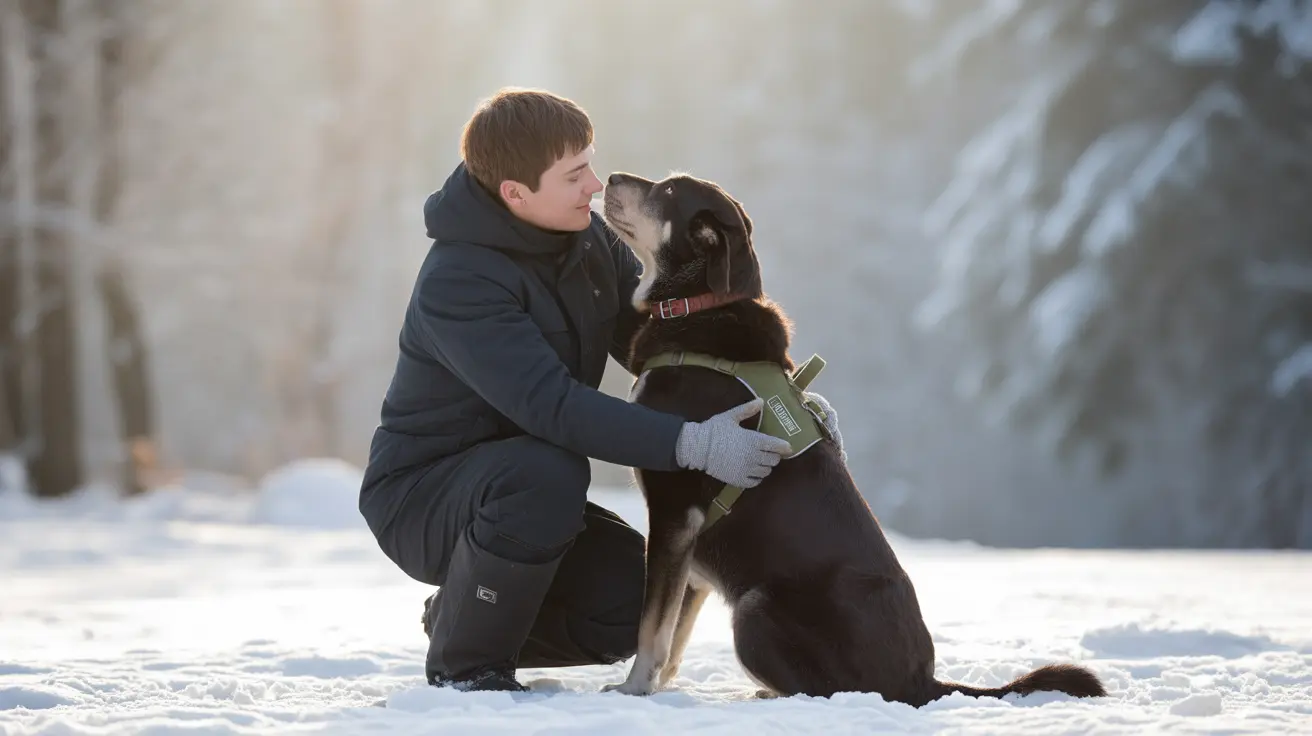The Hidden Toll of Fireworks on Pet Welfare
Local animal welfare experts are documenting alarming patterns of pet distress linked directly to firework displays. The combination of sudden loud noises, bright flashes, and unpredictable timing creates a perfect storm of anxiety triggers that can devastate even the most confident pets.
Dog trainers report seeing increased behavioral issues in the weeks following major firework celebrations, while veterinarians note spikes in emergency visits for pets injured while fleeing in terror. Animal rescue facilities face overcrowding as frightened pets bolt from their homes and become lost or surrendered by overwhelmed owners unable to cope with newly developed phobias.
Signs of Pet Fear from Fireworks
Recognizing the early warning signs of firework-related distress is crucial for pet parents. Dogs typically exhibit obvious distress signals including excessive panting, trembling, destructive behavior, and attempts to hide or escape. Cats often respond by withdrawing completely, finding enclosed spaces to shelter, or becoming unusually clingy with their owners.
More severe reactions can include loss of bladder control, self-injury from panic-driven behavior, and long-term behavioral changes that persist well beyond firework season. These symptoms indicate that the animal's stress response has been triggered to dangerous levels.
How to Calm Dog During Fireworks
Creating effective coping strategies requires advance planning and patience. Professional trainers recommend establishing a designated safe space in your home—typically an interior room with minimal windows where outside noise is muffled. This space should be equipped with familiar bedding, toys, and comfort items.
Desensitization training involves gradually exposing pets to recorded firework sounds at very low volumes, paired with positive experiences like treats or playtime. This process must begin months before firework season and progress slowly to avoid overwhelming the animal.
During active firework displays, maintaining calm energy as an owner is essential, as pets often mirror their human's emotional state. Avoid consoling fearful pets excessively, as this can inadvertently reinforce anxious behavior.
Vet Advice for Fireworks Phobia
Veterinary professionals emphasize the importance of early intervention for pets showing signs of firework anxiety. Anti-anxiety medications, when prescribed appropriately, can provide significant relief for severely affected animals. These treatments work best when combined with behavioral modification techniques.
Natural calming aids like pheromone diffusers, anxiety wraps, and herbal supplements may benefit mildly affected pets. However, veterinary consultation is recommended before beginning any treatment regimen to ensure safety and effectiveness.
The Case for Firework Control Zones UK
Animal welfare advocates are pushing for comprehensive regulatory changes that would establish protected zones around areas with high concentrations of vulnerable animals. These firework control zones would restrict the timing, location, and decibel levels of firework displays.
Proposed legislation would require consideration of animal welfare before granting permits for firework displays, mandate advance notification to pet owners, and limit consumer access to the most powerful firework varieties. Such measures could dramatically reduce the annual spike in pet injuries and behavioral trauma.
Frequently Asked Questions
- How can I help my dog stay calm and safe during fireworks?
Creating a safe, quiet space at home, playing low-volume firework sounds for desensitization, using calming products like anxiety vests or pheromone diffusers, and consulting a vet for possible medication can help reduce a dog's firework anxiety.
- Why are fireworks so distressing to pets like dogs and cats?
Loud, sudden noises and flashing lights trigger fear and panic in pets due to their sensitive hearing and stress responses, causing behaviors like trembling, hiding, and attempts to escape, which can sometimes lead to injuries.
- What are the common signs that my pet is scared or stressed by fireworks?
Dogs may pant, tremble, bark excessively, hide or try to escape; cats often hide and withdraw quietly; horses can bolt and injure themselves. Signs vary but often include restless or fearful behavior during and after fireworks.
- Are there any risks of injury to pets from fireworks other than fear?
Yes, pets risk physical injuries from fleeing (broken limbs, torn ligaments), self-harm during panic (broken teeth), road accidents, burns or poisoning from firework debris, and in extreme cases, fatalities.
- What regulations exist or are proposed to protect animals from firework harm?
Animal welfare groups advocate for stricter firework controls such as licensed public displays only, restricted sale periods, firework control zones near vulnerable animals, and mandatory consideration of animal welfare before permits are granted. Some UK regions like Scotland have introduced laws reflecting these measures.
Moving Forward: A Call for Change
The united voice of West Midlands animal professionals represents a growing movement demanding legislative action to protect pets from preventable trauma. Their expertise and firsthand experience with firework-injured animals provide compelling evidence for the need for immediate regulatory reform.
As pet parents, supporting these advocacy efforts while implementing protective measures at home creates a two-pronged approach to addressing this widespread animal welfare issue. The goal is not to eliminate celebrations, but to find ways to enjoy them that don't come at the expense of our most vulnerable animal companions.






